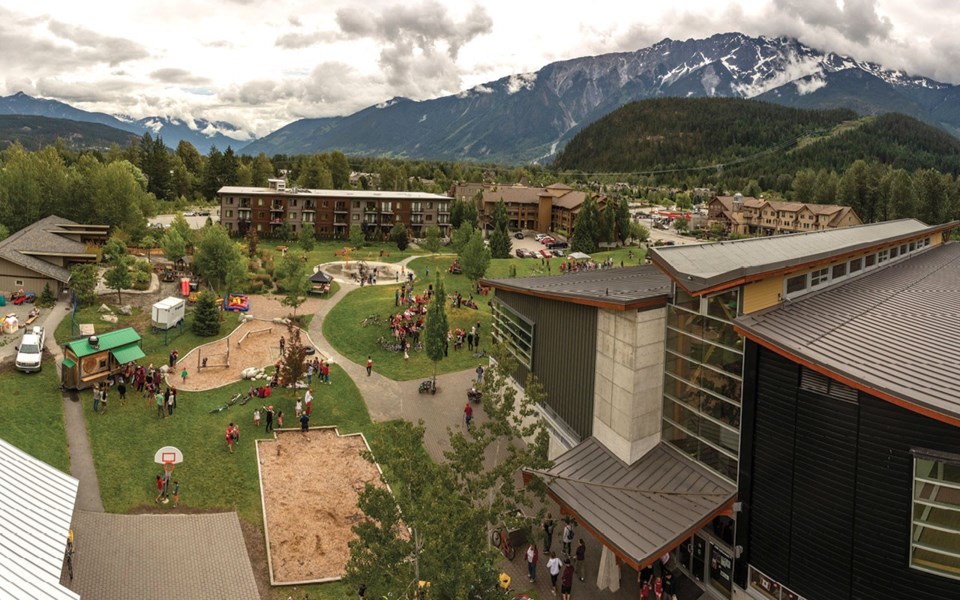When I saw the book on Emma Gillis' desk, I laughed so hard, I snorted.
"Shall I put your name on it?" asked Pemberton's Library Director, in her fantastic Irish brogue.
"Sure."
When I pick it up from the holds shelf a few weeks later, I sneak it into the house and hide it under a pile of other books. I don't want my husband to see it.
How Not To Hate Your Husband After Kids is not necessarily the book a guy wants to see on his wife's bedside table.
But I snort-laughed through the book, shocked at how widespread marital disharmony is, how hardcore the pink and blue battle lines are drawn through the experience of parenting. When you're in life lockdown or general triage, you don't realize how utterly banal and commonplace your stuff is. (Or if you're lucky, how manageable and mild and easy to nip in the bud with a few helpful tips from a candid hilarious book.)
When former Rolling Stone writer, Jancee Dunn turned her own marriage into the main stage, she outlouded the dirty secret that she, and the rest of her mama friends, were stewing in a giant vat of resentment. And, as if saying it out loud would make it even worse, it was rarely ever confessed. She told the Washington Post, "We really did have a placid marriage before (kids). But one day, we were squabbling about emptying the Diaper Genie, and I remember thinking, 'Wow, I could actually maybe kill him.' I thought this is not good. I've never had this kind of anger before."
Dunn puts their marriage through the paces, and consults a range of relationship experts for strategies and advice. In one chapter, she is advised that the best way to get your partner to do the jobs he never does is not to nag, withdraw sex, or straight up ask him to do it. It's to mention nothing about the task whatsoever, and then pay him random compliments. And magically, he will work his way around to doing the very thing you've been asking him to do for three years. It's very Art of War, but when she presents this tactical approach to her mom's group, they're so enraged at their partner's ongoing failure to do these tasks, they grimace through gritted teeth: "a compliment? Never going to happen."
They cannot yield their defining position as hard-done-by. They dig the trenches deeper.
At this point, you have to understand that the book is hilarious.
It's not hate-mongering. I swear.
It's one woman's genuine attempt to poison-let her marriage, to try and work through her own anger and resentment and get to a place where she and her partner are in sweet sync again.
That's what I kept telling my husband, after I slacked and forgot to lie the book face-down and he saw what I was burning midnight oil to plow through and I saw the whites of his eyes and the hackles on his back simultaneously activate and we were poised on the brink of a frosty edge where I was going to spend the next month defending all womankind and he was going to represent the beleagured menfolk and never the twain would meet again for a friendly cup of tea.
"It's really funny!" I said, feebly, pushing it across the divide. "Just read it."
As Canada Day was approaching, I was mulling over an article I'd read—a challenge offered up by the Next 150 Challenge, a campaign associated with the film Indian Horse, to push dialogue about reconciliation or decolonization, meaningfully forward. "Forego organized Canada Day events," prompted the newsletter. "Decolonize now, celebrate later. Instead consider spending the day on the land in honest reflection, ceremony or conversation with friends and family."
But when the kidlet got a last minute invitation to ride in the fire-truck (thanks Jay!), there was no chance we were making our political protest by boycotting Pemberton's celebration. And after I dropped him at the truck and walked along the Pemberton Portage Road, to find my place amidst my community, I was surrounded by people, including Lil'wat families, and I felt this wave of emotion and relief, as if I was granted permission to fully feel my ambivalence about this "celebration" and the things that had been done in the name of carving a nation on top of someone else's home, but I could still participate in it wholeheartedly, because we are all in this project, of creating the world right now, together.
Can I acknowledge that sometimes parenting is fraught, and marriage is a weird ongoing wrestle and a beautiful adventure, and some of the things that other women face resonate with me, and sometimes acknowledging that it must be incredibly hard to be a dad feels like I'll lose ground in my personal turf war, and yet I am in it, and in love with it, wholeheartedly. Can my joy and my frustration at the imperfections and injustices in the world, co-exist?
It's hard to be a man these days. It's also hard to be a woman. It's hard to be trans. It's hard to be a parent, straight or gay. It's hard to not be a parent. It's hard to be Indigenous. It's hard to be non-Indigenous. Let's face it, it's hard to be truly and whole-heartedly human. But for that morning of gathering, for Canada Day in Pemberton 2018, I felt this surge of community and a suggestion of a willingness to collaborate better together, through all the challenging and exhausting moments, through the unfairness, despite our differences, to craft a new story and to make it worthy of celebration.
The Velocity Project: how to slow the f*&k down and still achieve optimum productivity and life happiness.




